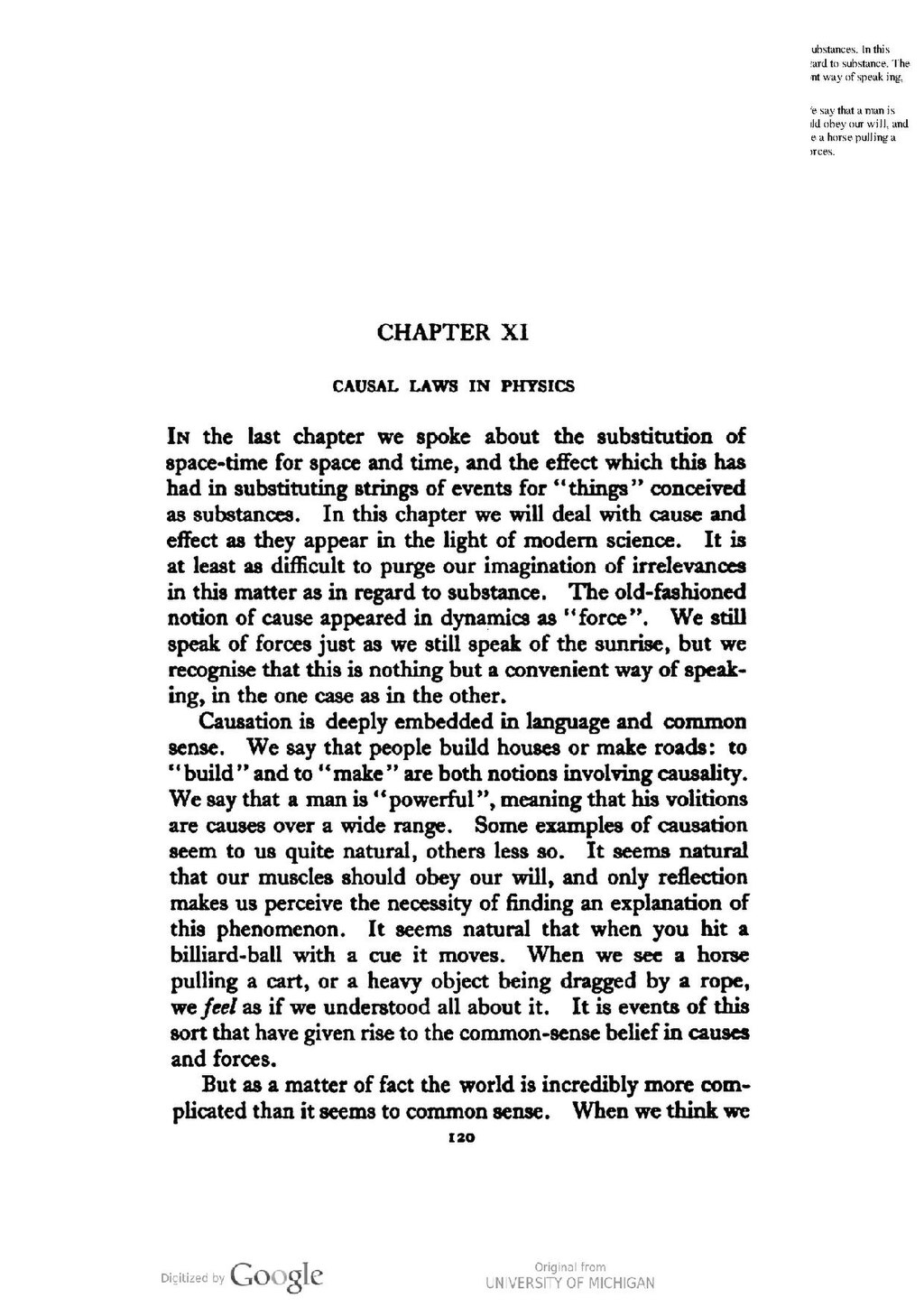In the last chapter we spoke about the substitution of space-time for space and time, and the effect which this has had in substituting strings of events for "things" conceived as substances. In this chapter we will deal with cause and effect as they appear in the light of modern science. It is at least as difficult to purge our imagination of irrelevances in this matter as in regard to substance. The old-fashioned notion of cause appeared in dynamics as "force". We still speak of forces just as we still speak of the sunrise, but we recognise that this is nothing but a convenient way of speaking, in the one case as in the other.
Causation is deeply embedded in language and common sense. We say that people build houses or make roads: to "build" and to "make" are both notions involving causality. We say that a man is "powerful", meaning that his volitions are causes over a wide range. Some examples of causation seem to us quite natural, others less so. It seems natural that our muscles should obey our will, and only reflection makes us perceive the necessity of finding an explanation of this phenomenon. It seems natural that when you hit a billiard-ball with a cue it moves. When we see a horse pulling a cart, or a heavy object being dragged by a rope, we feel as if we understood all about it. It is events of this sort that have given rise to the common-sense belief in causes and forces.
But as a matter of fact the world is incredibly more complicated than it seems to common sense. When we think we
